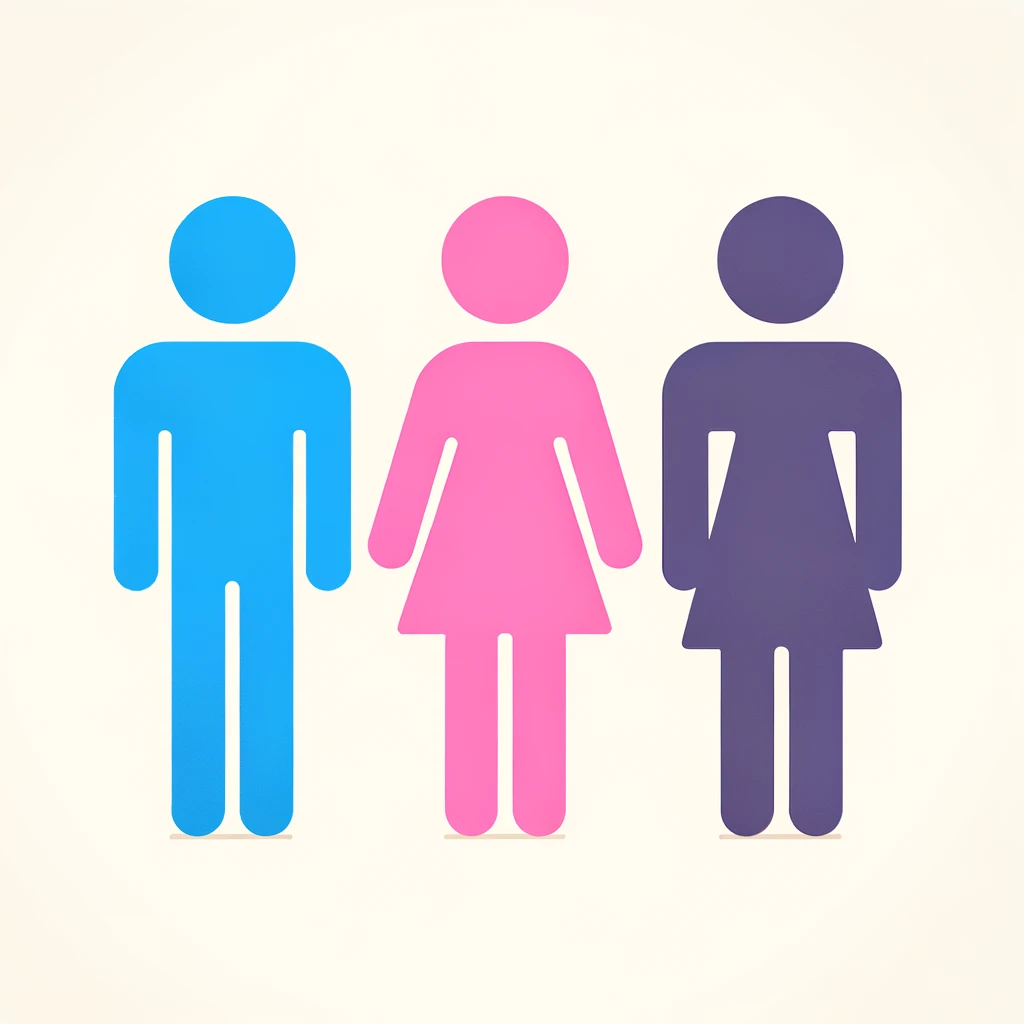Gender
Definition
Gender typically refers to the state of being male, female, or an alternative gender. This can encompass a range of identities that do not always fit within traditional understandings of male and female.
Parts of Speech
- Noun
Pronunciation
American English
- IPA Pronunciation: /ˈdʒɛndər/
- Respelling: JEN-der (with "JEN" as in "jet" and "der" as in "butter")
British English
- IPA Pronunciation: /ˈdʒɛndə/
- Respelling: JEN-duh (with "JEN" as in "jet" and "duh" as in "sofa")
In both dialects, "gender" places the primary stress on the first syllable, "JEN." The pronunciation is similar across both American and British English, focusing on the clear articulation of "JEN-der" in American English and "JEN-duh" in British English.
Etymology
The word "gender" originates from the Middle English "gendre," a word derived from Old French meaning kind, type, or sex. This was influenced by Latin's "genus" which means race, stock, or kind.
Derivatives
- Gendered (adjective)
- Genderless (adjective)
- Genderqueer (adjective, noun)
- Gendering (verb, present participle)
- Gender-specific (adjective)
Synonyms
- Sex
- Gender identity
- Gender expression
Antonyms
- None
Usage
Gender is a key aspect of individual identity and can influence various areas of life, including personal experiences, social roles, and legal status. It plays a crucial role in sociocultural discussions and has significant implications in areas such as law, healthcare, and education. Understanding gender involves recognizing both the internal identification of individuals and the external expectations and norms imposed by society.
Related Terms
- Transgender
- Cisgender
- Non-binary
- Gender dysphoria
- Gender role
Detailed Definition
Noun
- Socially Constructed Roles and Identities: Refers to the roles, behaviors, activities, and attributes that a given society considers appropriate for men, women, and other genders.
- Example: Traditional gender roles often dictate that men should be strong and women should be nurturing, though these views are increasingly challenged.
- Gender Identity: An individual's personal sense of their own gender, which may or may not correspond with the sex they were assigned at birth.
- Example: She identifies as non-binary, feeling that her gender does not fit within the traditional categories of male or female.
- Grammatical Gender: A system in some languages where nouns are categorized as masculine, feminine, neuter, or other gendered classes, often affecting other parts of speech such as adjectives and pronouns.
- Example: In Spanish, the word "niño" (boy) is masculine, while "niña" (girl) is feminine.
gender



🇨🇳 Mandarin
- 性别 (Xìngbié)
- IPA: [ɕiŋ˧˥ pjɛ˧˥]
- Respell: Xing-bie
🇮🇳 Hindi
- लिंग (Ling)
- IPA: [lɪŋɡ]
- Respell: Ling
🇪🇸 Spanish
- Género
- IPA: [ˈxeneɾo]
- Respell: Hen-ero
🇫🇷 French
- Genre
- IPA: [ʒɑ̃ʁ]
- Respell: Zhanr
🇸🇦 Modern Standard Arabic
- جنس (Jins)
- IPA: [d͡ʒɪns]
- Respell: Jins
🇧🇩 Bengali
- লিঙ্গ (Linga)
- IPA: [liŋɡa]
- Respell: Ling-ga
🇷🇺 Russian
- Пол (Pol)
- IPA: [pol]
- Respell: Pol
🇵🇹 Portuguese
- Gênero
- IPA: [ˈʒɛneɾu]
- Respell: Zhe-nero
🇮🇩 Indonesian
- Jenis Kelamin
- IPA: [d͡ʒɛnɪs kəˈlamɪn]
- Respell: Je-nis Ka-la-min
🇩🇪 German
- Geschlecht
- IPA: [ɡəˈʃlɛçt]
- Respell: Ge-shlecht
🇯🇵 Japanese
- 性別 (Seibetsu)
- IPA: [sei̯betsɯ]
- Respell: Sei-betsu
🇻🇳 Vietnamese
- Giới tính
- IPA: [zɔ̂i tîɲ]
- Respell: Zoy tin
🇰🇷 Korean
- 성별 (Seongbyeol)
- IPA: [sʌŋbjʌl]
- Respell: Seong-byeol
🇹🇷 Turkish
- Cinsiyet
- IPA: [d͡ʒinsiˈjet]
- Respell: Jin-see-yet
🇵🇰 Urdu
- جنس (Jins)
- IPA: [d͡ʒɪns]
- Respell: Jins





